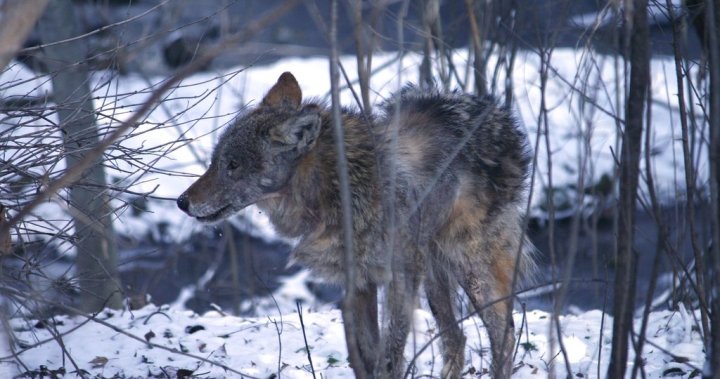A pair of coyotes have been euthanized after a number of reported attacks in the Fort York and Liberty Village neighbourhoods, the City of Toronto said Tuesday.
“Like foxes, raccoons and deer, coyotes are a natural part of Toronto’s urban landscape, coexisting with residents largely without issue,” a release from the city said.
“However, a unique situation has developed in recent months in the Fort York and Liberty Village neighbourhoods that required an escalated response to keep the public and pets safe.”
In February, the Coyote Safety Coalition — a group representing residents in the two neighbourhoods — claimed six local coyote attacks occurred in a single night, including at least two that required emergency treatment for pet dogs.
A panel hired by the city recommended setting up a specialized team to assess the coyotes, use “adapted aversion techniques” and enforce laws against dumping and feeding wildlife.
“Despite these actions, and consistent with independent assessments, it was identified that the Liberty Village and Fort York neighbourhoods have a confluence of several unique factors that have conditioned the coyotes to human interactions,” the release said.

Get breaking National news
For news impacting Canada and around the world, sign up for breaking news alerts delivered directly to you when they happen.
“This conditioning has in turn led to injuries and pet attacks.”
It went on to say that a number of issues led to the coyote problems, including habitat displacement and limited greenspace. It also cited the feeding of wildlife and uncollected dog excrement, which can attract rats, a food source for coyotes.
The city said that animal services had determined that one of the coyotes was responsible for a number of the attacks while his mate was also there.
Toronto officials believe that a third coyote has left the area and said it may have been due to increased aversion activities.
A fourth coyote has not been seen in the area of late, according to the release, which also notes that it was not involved in interactions with people.
Toronto has also created a multi-part Downtown Coyote Action Plan, which focuses on a number of areas including waste management, property maintenance and bylaw enforcement.
“Coyotes are an important part of Toronto’s diverse ecology, helping to control rodent and rabbit populations,” Toronto Animal Services director Esther Attard stated.
“Coyotes have adapted very well to life in the city as food and shelter are plentiful and natural predators are limited. So, these animals will continue to live near us.”
*With files from The Canadian Press
© 2025 Global News, a division of Corus Entertainment Inc.
Read the full article here

